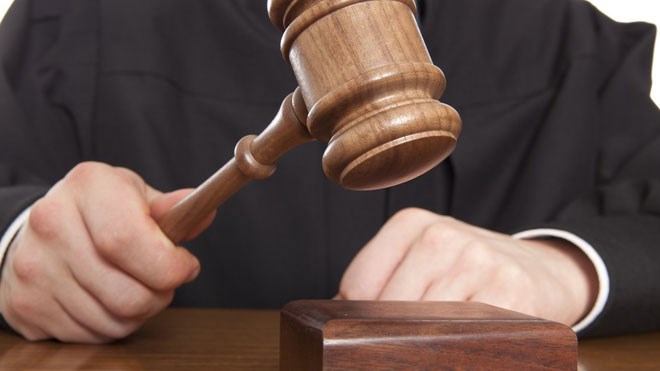SUDBURY — A Sudbury judge has been suspended without pay for 30 days after he was found guilty of judicial misconduct by a provincial body in charge of investigating complaints about judges.
Justice John Keast, who at one time sat as a judge in Sault Ste. Marie, fought unsuccessfully to have the inquiry into his conduct held in private, arguing that because youths were involved, there should be a publication ban on the entire case.
However, the Ontario Judicial Council (OJC) ruled that such a sweeping ban should only be imposed if there was no other way to ensure the confidentiality of vulnerable persons. As a result, no information that could lead to children in the case being identified can be made public.
In its decision, the council detailed the facts of the case. Between January and March 2016, Keast exchanged text messages with a friend who works for the Children's Aid Society.
“In early January 2016, Justice Keast learned that a young person whom he knows was at immediate risk of harm,” the council says in its written decision. “He reached out to his friend, who worked for the CAS, in a text message. It is the series of text messages that the two exchanged over the following three months that lies at the heart of these proceedings.”
At the time, he was hearing a case involving the CAS. Someone managed to get Keast's cellphone, copied the texts and gave them to the CAS, who filed the complaint.
The texts revealed that Keast had:
- Communicated confidential information to a party;
- Used his friendship with the recipient of the text messages to gain access to confidential information;
- Expressed his views about the CAS matter of which he was handling as a judge;
- Made inappropriate comments that could be perceived as indicating bias against the CAS, an institution that regularly appeared before him;
- Provided legal advice to his friend; and,
- Sought to conceal the text messages from those who might be affected by the exchange of information which they contained.
Keast tried to have the text messages excluded from the hearing, arguing his privacy had been violated. But the council ruled that, while individuals have a right not to have their privacy invaded by the state, it was an individual acting on their own that had stolen the messages. In order to invoke his charter rights, the texts had to be taken by the state.
“We would conclude on this issue by observing that, in any event, in a hearing to determine whether judicial misconduct took place, it is virtually inconceivable that the administration of justice would be better served by excluding the evidence of the alleged misconduct, rather than admitting it,” the council ruled.
Keast admitted to the misconduct and his lawyer sought a warning, but nothing else, as punishment. Lawyers for the council recommended a 15-day suspension. But the OJC ruled the overriding principle in handing down punishment was to restore public confidence in the judicial system.
“In determining the appropriate disposition, the Hearing Panel’s focus must be on what sanction, or combination of sanctions, is sufficient to restore public confidence both in Justice Keast and in the administration of justice generally,” the Council wrote.
In his favour, Keast took counselling to help him understand the implications of his actions, admitted fully to what he had done, and had an unblemished 17-year record as a judge before the current incident. His defence also provided 60 letters of support from colleagues, members of the public and court staff.
But the council rejected both sentencing recommendations and opted for a harsher punishment.
“In our view, given the nature and extent of the misconduct, the real choice was between the second most serious sanction available – suspension without pay for 30 days – and recommending that Justice Keast be removed from office,” the council wrote.
“In the end, we concluded that a recommendation for removal was not necessary to restore public confidence in Justice Keast and in the administration of justice generally … We are satisfied that conduct of this sort will never occur again. We are also satisfied that his reputation as an entirely fair-minded and impartial judge dedicated to the highest ideals of judicial conduct is warranted.”
In addition to the suspension, Keast was ordered to apologize to the people he criticized in the text messages.
— Sudbury.com
